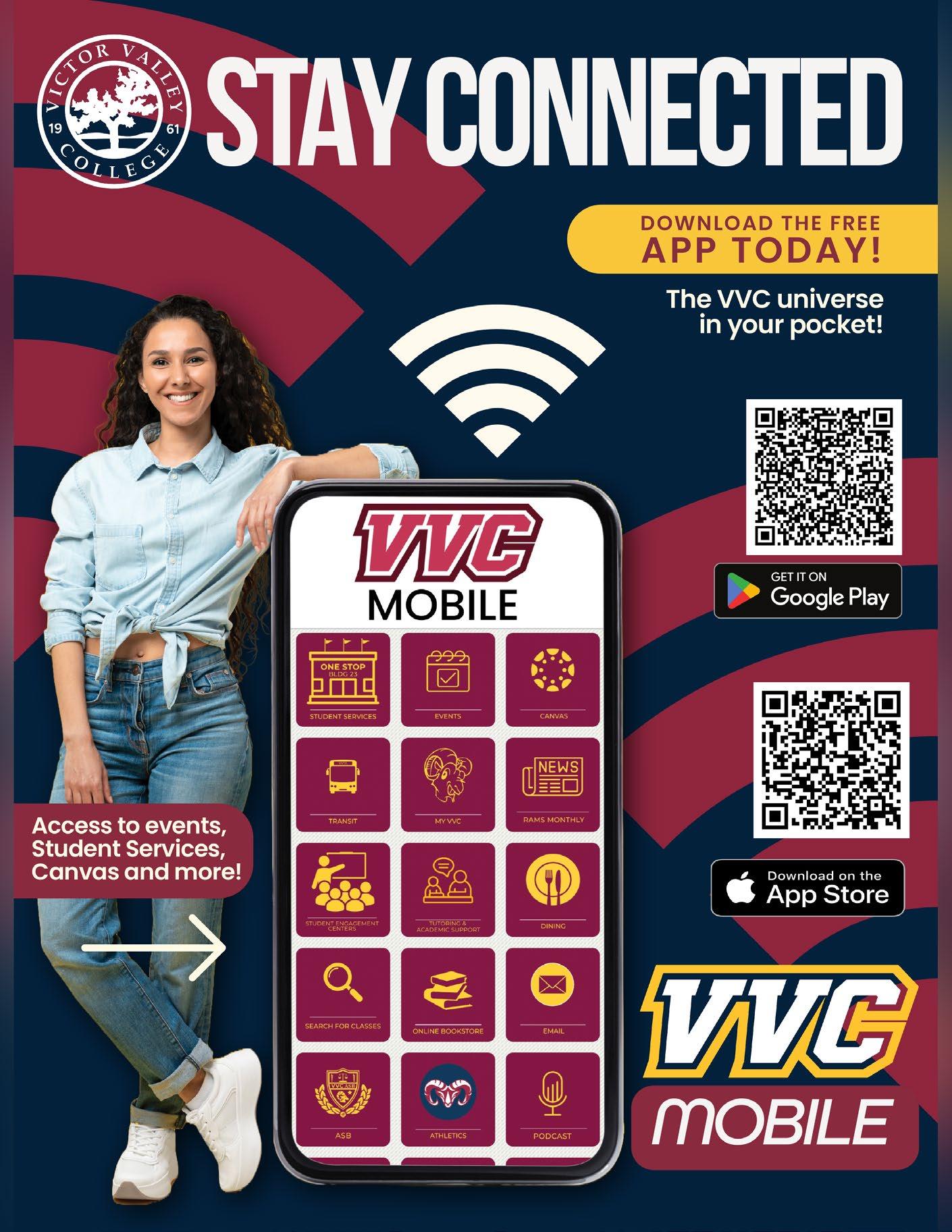RAMS
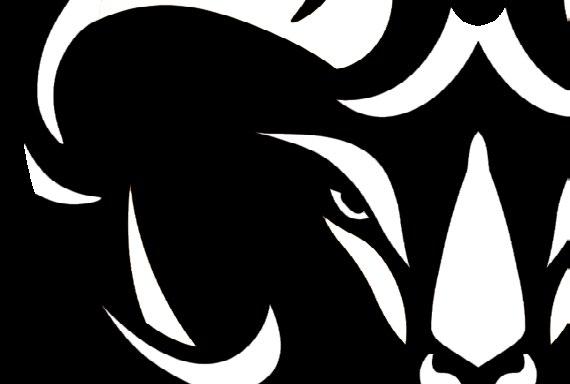
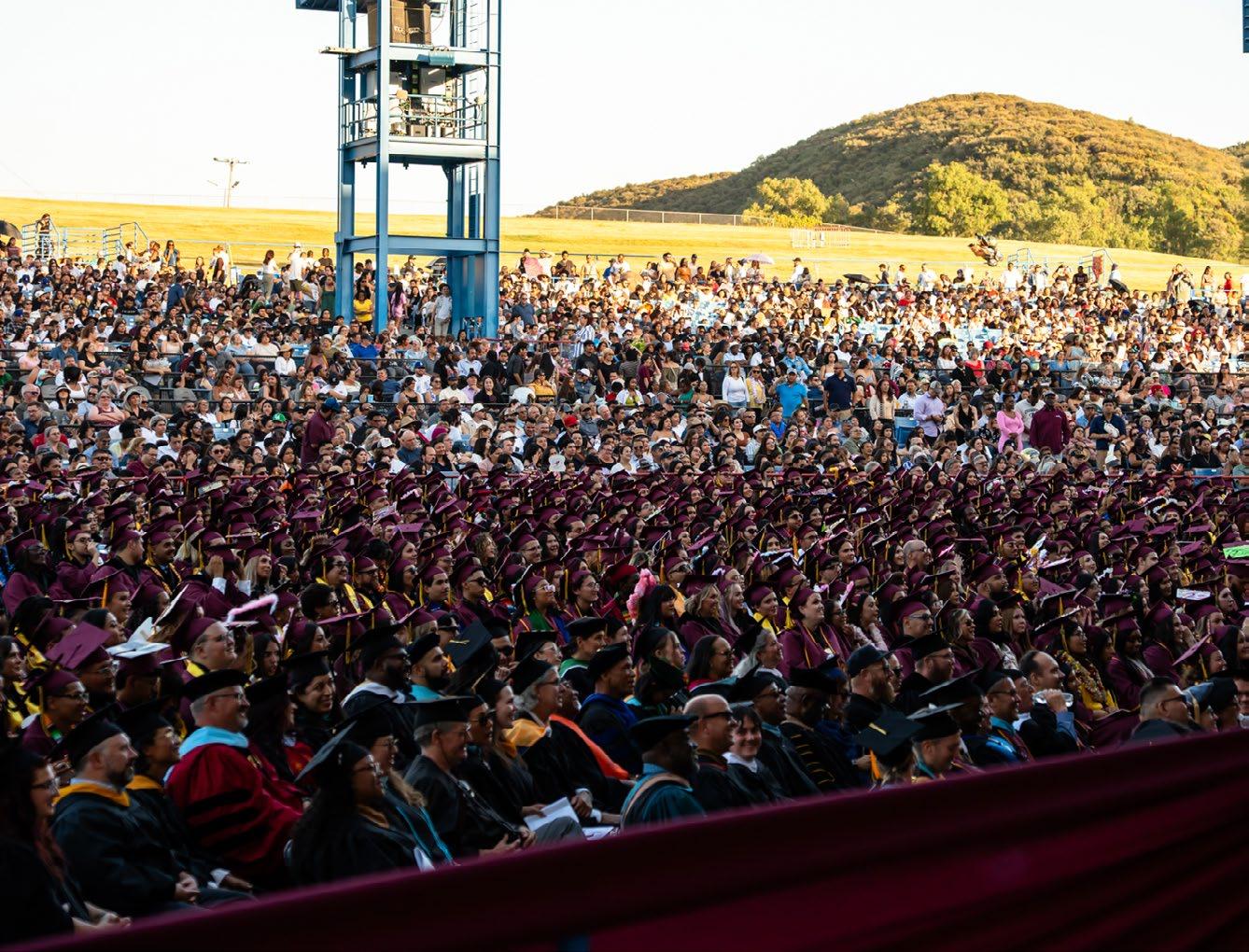





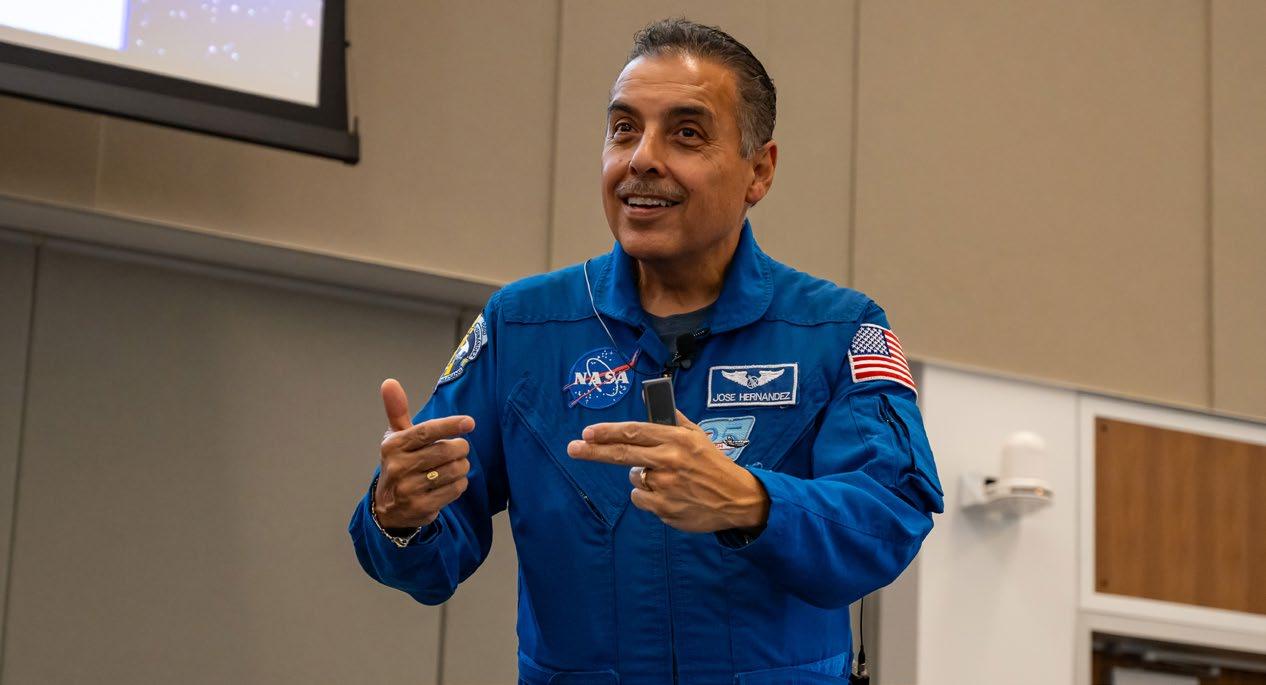
Nearly 430 attendees filled the Educational Event Center at Victor Valley College (VVC) to hear from former NASA astronaut José Hernández, who delivered an inspiring and deeply personal presentation to students, faculty, and community members. His visit marked a monumental moment for VVC, as his journey from migrant farmworker to space explorer exemplifies the power of resilience, education, and scientific achievement.
A key highlight of Hernández’s presentation was his groundbreaking work prior to joining NASA: the co-development of the first fullfield digital mammography imaging system. This innovative technology, which continues to be used today, marked a significant advancement in the early detection of breast cancer. “When people ask me what’s my proudest professional moment, it’s not wearing this blue suit, it’s not going to space, it’s this, because I know I’ve made a difference in humanity in the fact that we’ve saved countless lives.” said Hernandez during a roaring applause by the audience. By enabling more accurate imaging than traditional film-screen mammography, the system allows for earlier diagnoses. This achievement, Hernández emphasized, showcases how science and engineering can directly impact public health.
SPEAKS TO A FULL HOUSE AT VVC’S EDUCATIONAL EVENT CENTER ON MAY 23, 2025.
“When students meet someone who’s literally reached the stars, they begin to see how far their own dreams can be accomplished. At Victor Valley College, through the MESA Program, we empower students from all backgrounds to pursue careers in STEM—and to realize that their potential is limitless. Today it’s a conversation with an astronaut Jose Hernandez, tomorrow, it could be you leading a mission of your own.” Said Pablo Saldana, STEM Program Manager & MESA Director who coordinated the evening event.
Before becoming a NASA astronaut, José Hernández faced rejection from the space agency not once, but eleven times. Despite being turned away year after year, he remained undeterred, improving his qualifications, gaining flight training, and deepening his expertise in engineering and science. His perseverance paid off in 2004 when he was finally selected as part of NASA’s 19th class of astronauts. Five years later, in 2009, Hernández launched aboard the Space Shuttle Discovery on mission STS-128 to the International Space Station. His journey from humble beginnings as a migrant farmworker to a seat in orbit has become a beacon of hope for countless students pursuing STEM carers.
During the event, which included STEM
students and members of the general public, Hernández captivated the audience with stories from his career — both in aerospace and biomedical engineering. His firsthand accounts of working at NASA, training as an astronaut, and eventually traveling aboard the Space Shuttle Discovery to the International Space Station served as a powerful reminder of what is possible through persistence and education.
The event was part of VVC’s ongoing commitment to providing students with access to real-world professionals and role models in science, technology, engineering, and mathematics (STEM). Hernández’s visit not only energized future engineers and scientists but also underscored the college’s mission to inspire the next generation of innovators.
For more information about upcoming events and STEM programs at Victor Valley College, visit www.vvc.edu.
Victor Valley College (VVC) and the Federal Bureau of Prisons’ Federal Correctional Complex (FCC) Victorville have expanded their long-standing partnership to deliver innovative academic and vocational training programs to incarcerated students—this time, beyond the walls of the correctional facility.
In January 2025, a historic milestone was reached when four female inmates from the minimum-security Satellite Camp (SCP) Victorville became the first federal inmates in the nation to attend community college classes in person while still serving their sentence. The students—carefully selected by FCC Victorville based on academic progress and internal criteria—had already demonstrated strong commitment through correspondence and packet-based learning.
Their journey began with a campus orientation in December 2024, designed to help them acclimate to college expectations and student life. Just four months later, these trailblazing women have completed multiple courses in Kinesiology, Chemistry, Algebra, and English, showcasing both their academic determination and the success of this pioneering collaboration.
“These students are not only earning degrees—they’re redefining what rehabilitation and reintegration can look like through access to higher education,” said Dr. Daniel Walden, Superintendent/ President of Victor Valley College. “This is what transformation through education truly means.”
One student shared, “Being able to attend college in person while incarcerated has been life changing—it’s reminded me that I’m still human, still capable, and still have a future worth fighting for.”
Another participant reflected on the role of education in her reintegration journey, stating, “This is a really good program that helps us prepare for reintegration back into society. It proves we can still be productive and contribute.”
A third student added, “The last time I went to school was around 20 years ago. I know that I’m succeeding today because of the support we’re getting and no one making me feel unworthy or less than.”
The four students are on track to earn
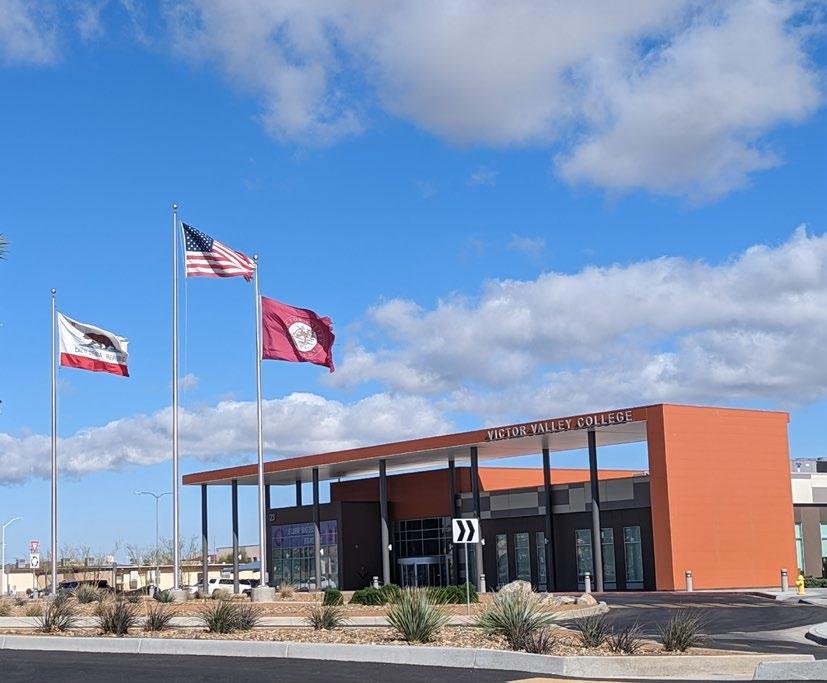
associate degrees in Business and/or Sociology, with additional coursework in Paralegal Studies and Welding. They also actively participate in student services and campus activities, gaining valuable skills and broadening their academic portfolio.
Building on the success of this first cohort, VVC and FCC Victorville launched their first vocational furlough program, the Workforce Readiness Academy, in early 2025. Twelve additional students from the women’s camp were selected to complete an intensive series of job-readiness trainings and certifications. These include OSHA30 Safety, Forklift Operator (Classes I-V), CPR/First Aid, Workforce Preparation, and Financial Literacy.
These courses were made possible through VVC’s Workforce Development Department & Justice-Involved Education Program, with instruction supported by VVC Faculty, Tomorrow’s Talent, and JPMorgan Chase. San Bernardino County Workforce Development Department also provided resources and logistical support. All training was hosted at VVC’s High Desert Training Center located at the Southern California Logistics Airport.
“This program works because of the dedication and excellence of each student, and the strong collaboration between our college and FCC Victorville,” said Frank Castanos, Executive Director of Workforce Development at VVC. “We’re excited to keep building on this foundation and expand reentry education opportunities across the region.”
This initiative reflects Victor Valley College’s deep commitment to its mission—providing access, equity, civic engagement, and community transformation through outstanding student experiences. By extending higher education beyond campus borders, VVC is leading the way in creating meaningful second chances for individuals who are ready to rebuild their futures.
As the partnership continues to grow, VVC and FCC Victorville remain committed to offering innovative and inclusive educational experiences that not only prepare students for successful reentry but also contribute to safer and stronger communities.

What is Juneteenth?
Juneteenth, celebrated on June 19, marks the day in 1865 when Union soldiers arrived in Galveston, Texas, to announce the end of the Civil War and enforce the emancipation of all enslaved people—more than two years after President Abraham Lincoln issued the Emancipation Proclamation. This powerful moment in American history represents the delayed but eventual liberation of the last remaining enslaved African Americans in the Confederacy. Over the years, Juneteenth has grown from a local celebration in Texas to a nationwide observance of freedom, resilience, and the ongoing fight for civil rights.
Why Juneteenth Matters
Juneteenth is often referred to as America’s second Independence Day, offering a time to reflect on the legacy of slavery and honor the contributions of African Americans throughout history. It is both a celebration of Black culture and heritage, and a call to continue the pursuit of justice and equality for all. In 2021, Juneteenth was officially recognized as a federal holiday, further cementing its importance in the national consciousness. From family gatherings and parades to educational events and storytelling, Juneteenth invites all Americans to learn, reflect, and stand in solidarity.
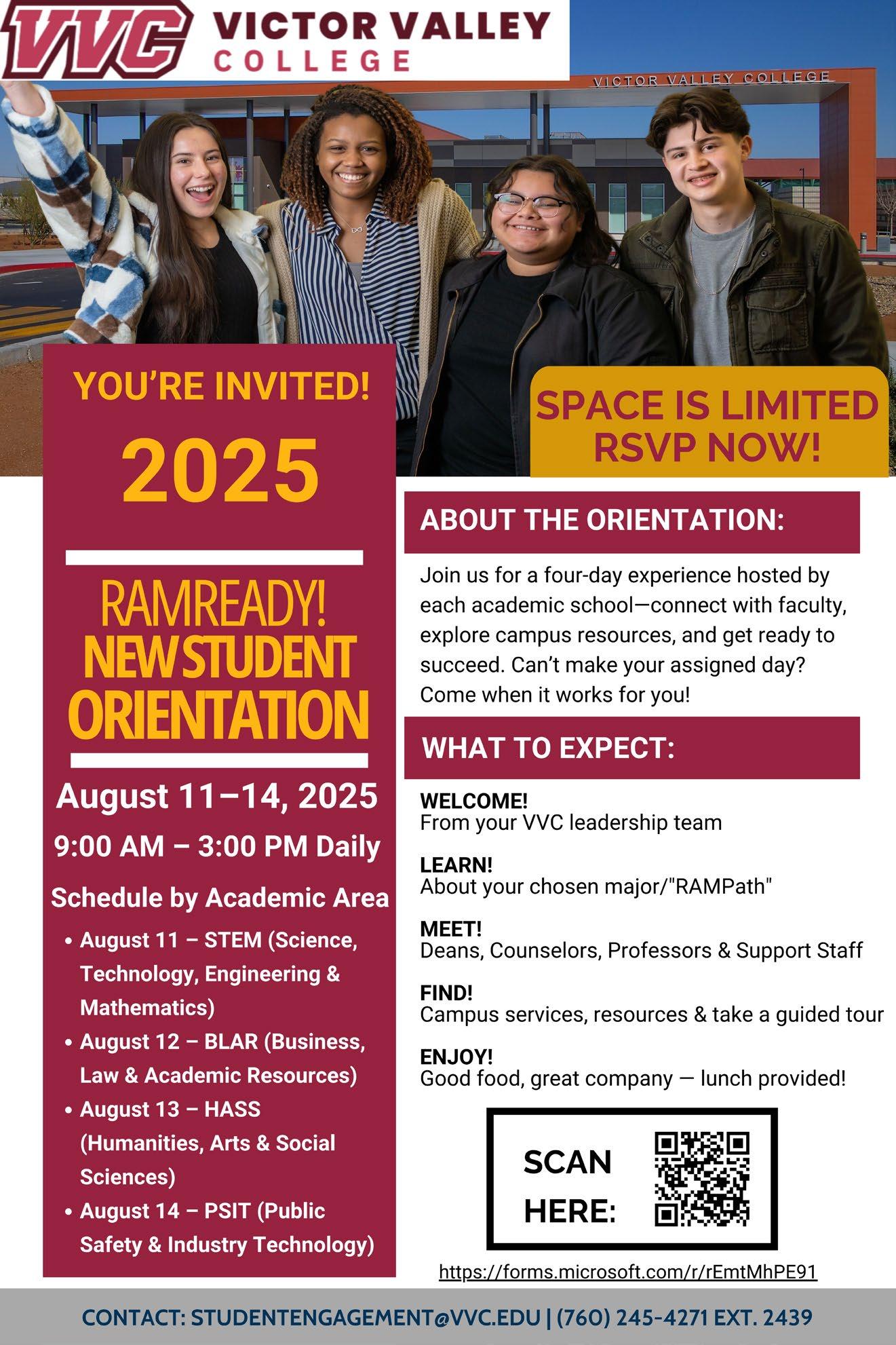

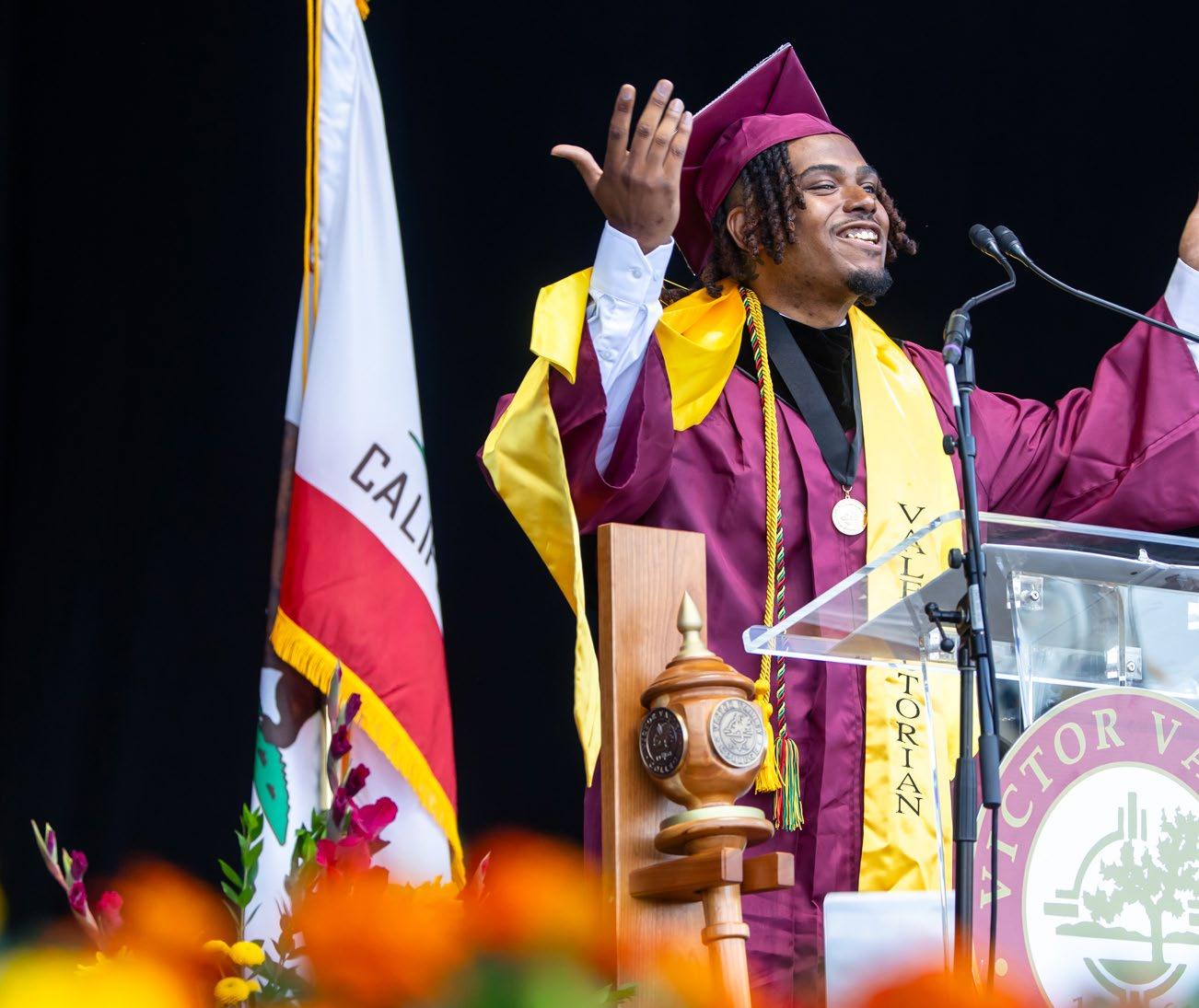
On June 18, 2025, under the unrelenting sun of the Inland Empire, Victor Valley College hosted its largest commencement in school history at the Glen Helen Amphitheater in San Bernardino. More than 950 graduates walked the stage as over 12,000 family members, friends, faculty, and community supporters filled the stands—braving near triple-digit temperatures to celebrate the unstoppable Class of 2025.
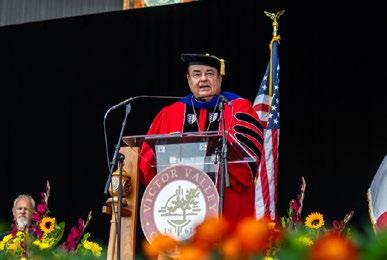
As the sun scorched the open venue and temperatures neared 99°F, guests fanned themselves with programs, clutched bottles of water, and shaded their eyes from the glare. Despite the heat, the atmosphere was electric—charged with emotion, pride, and perseverance.
“This record-breaking ceremony reflects the heart and strength of Victor Valley College,” said Dr. Daniel Walden, VVC Superintendent/President. His speech echoed with humor, heart, and conviction, culminating in one of the night’s most resonant messages:
“You don’t need a title to lead, a spotlight to make a change, or a cape to be a hero. You’re ready now—not someday, not after another degree—but now.”
Samuel Adams Sinkfield: A Story of Survival
One of the most unforgettable voices of the evening belonged to student speaker Samuel Adams Sinkfield, whose personal testimony held the crowd in a silent, emotional grip. He began candidly:
“I wasn’t even supposed to be here. Not at this podium. Not even alive right now.”
Samuel shared his journey through unimaginable challenges—losing his mother at a young age, falling into homelessness, surviving a shooting, and losing friends to violence and injustice. But instead of being defined by pain, Samuel transformed it into purpose. His message was raw and real:
“This speech isn’t just about a degree—it’s
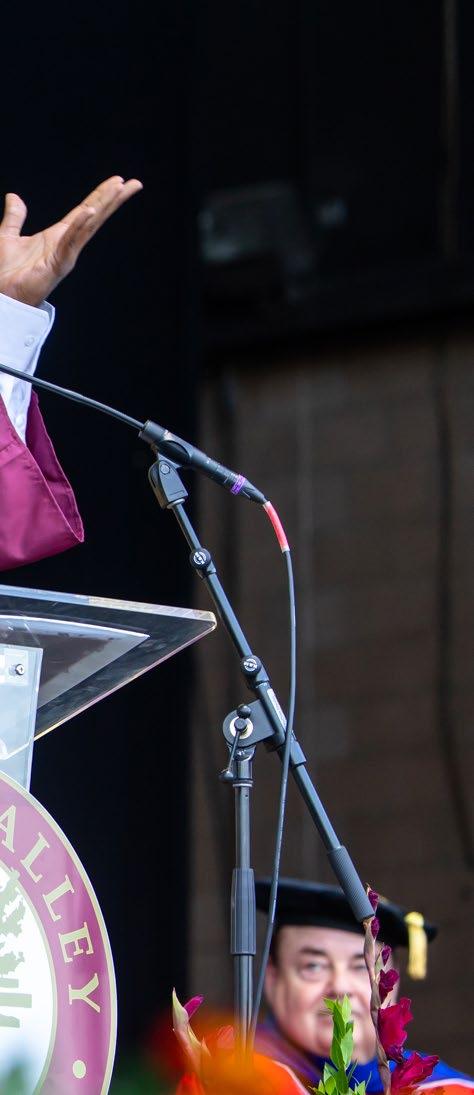
about survival. It’s about what it means to break cycles, to carry your pain with purpose, and to never let your past define your future.”
His courage became a rallying point, not just for his classmates, but for the thousands listening in awe.
Hailey Reyes: Building Legacy Through Adversity
ASB President and Student Trustee
Hailey Reyes took the stage next, offering a heartfelt reflection on how pain, too, can give way to purpose. After losing her grandmother, father, and aunt within two years—and nearly losing herself in the process—Hailey turned her story of struggle into a story of strength.
Once told she wouldn’t graduate with her
high school class, she pushed forward and finished seven months early. Though her first semester at VVC ended in failure, she didn’t quit—instead, she rose. By 2025, she had authored statewide resolutions, advocated in Washington, D.C., and earned multiple degrees.
“The disadvantages I thought I had been dealt were simply not that—they were my superpower,” she declared.
She reminded the class that legacy isn’t reserved for the perfect—it belongs to those who show up, speak out, and keep going.
“Your voice, your actions, and your decisions—they are the building blocks of your legacy.”
As the sun finally dipped behind the stage, graduates walked across the stage to claim their legacy, caps flew into the warm, night sky, the audience erupted in celebration and air horns. The warmth in the air was more than just heat—it was the fire of stories told and lived, obstacles overcome, and futures rewritten.
The Class of 2025 didn’t just break records—they broke molds. And when the world asks where it all began, each one will answer with pride:
“Victor Valley College.”
VVC’s Momentum: Growth That’s Transforming a Region
According to statewide data, Victor Valley College has been the fastest-growing community college in California, consistently leading enrollment growth among the state’s 116 community colleges for several consecutive years. During the 2024–2025 academic year, over 2,100 students qualified for graduation—a milestone reflecting the college’s expanding reach and impact. A recent economic impact report by the college revealed that VVC contributes over $553 million annually to the San Bernardino County economy. The increased earnings of VVC alumni—both graduates and those who’ve attended—combined with the contributions of the businesses they work for, generate more than $398 million annually.
Today, Victor Valley College proudly serves approximately 24,000 students across the region, continuing its mission to empower lives, uplift communities, and drive economic opportunity through education.
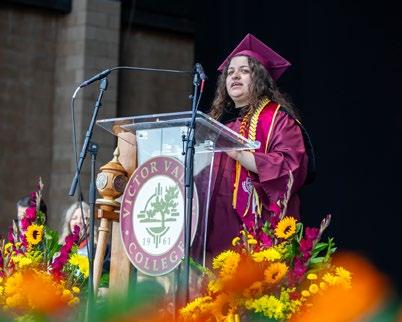
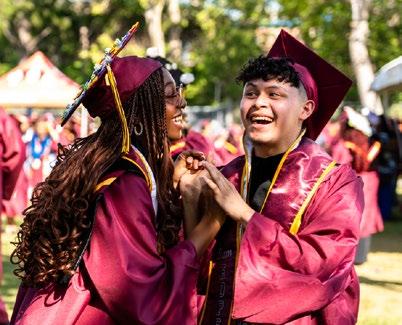
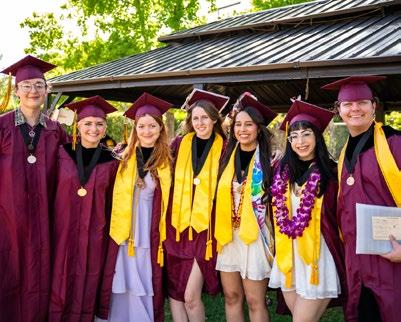
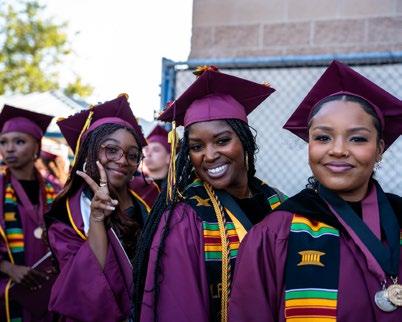

June is commonly referred to as Pride Month across the nation. VVC GSA student president Zee Gayton was asked to contribute to RAMS Monthly on the significance on this month. Below is that submission.
By: VVC GSA president Zee Gayton
On June 28th, 1969, the Stonewall Inn, a notorious gay bar in New York City, was raided by the New York City Police Department. This wasn’t the first time this had happened to the Stonewall Inn, or at any popular gay bar in the states, but the patrons and staff were no longer willing to be complacent with the constant policing of them and their siblings in their safe spaces.
This sparked a six-day protest against the NYPD, which we now know as the Stonewall Riots or the Stonewall Uprising.
The raiding of gay bars had been happening throughout the United States for almost fifteen years at this point, and Stonewall was by no means the first to fight back against the police raids, but it was the most covered and influential at the time, acting as a catalyst for the formation of more LGBTQ+ groups all over the country.
Everyone who fought for and protected their community during the raids allowed us to be who we are today. Queer people today
still face discrimination and harassment, but without those who fought for their rights over 55 years ago, we’d be in the same situations they were in.
In 1999, former president Bill Clinton designated June as LGBT Pride Month, which we now refer to as Pride Month, to remember the Stonewall uprising, and to serve as a reminder of those who fought for their rights and fought for the rights of their future queer siblings and children.
To me, Pride Month acts as a reminder to carry on the fight that those before us started, to help support each other through whatever we individually and communally face, and that everyday that I wake up, I deserve to be proud of who I am.
That last part is hard sometimes, but that’s what our community is for, to remind us of that. Community has been, and always will be, the core focus of Pride. If we don’t have community, then what do we have?
I try my best to embody this spirit, not only in myself, but in the GSA Club as well. Many of our queer club members don’t have people in their lives who are very accepting of them, so my hope is to make the GSA and the Pride Center a welcoming place where they know they will be accepted no matter how they identify or who they love. This sense of
community is not only for our queer peers, but also extends out to our allies on campus and anyone who has questions about the LGBTQ+ community.
We will never turn anyone away who wants to learn. We were all confused once, scouring places for answers and explanations for the way we were feeling. At the GSA and the Pride Center, you will never be shamed for asking a question. Personally, I genuinely enjoy
helping people learn more about the community I’m part of and love so much. I feel it helps spread tolerance, patience, and love.
With that, I ask that you hold your head a little higher today, and be proud of who you are.
“United we stand, divided they catch us.”
-Jose Sarria
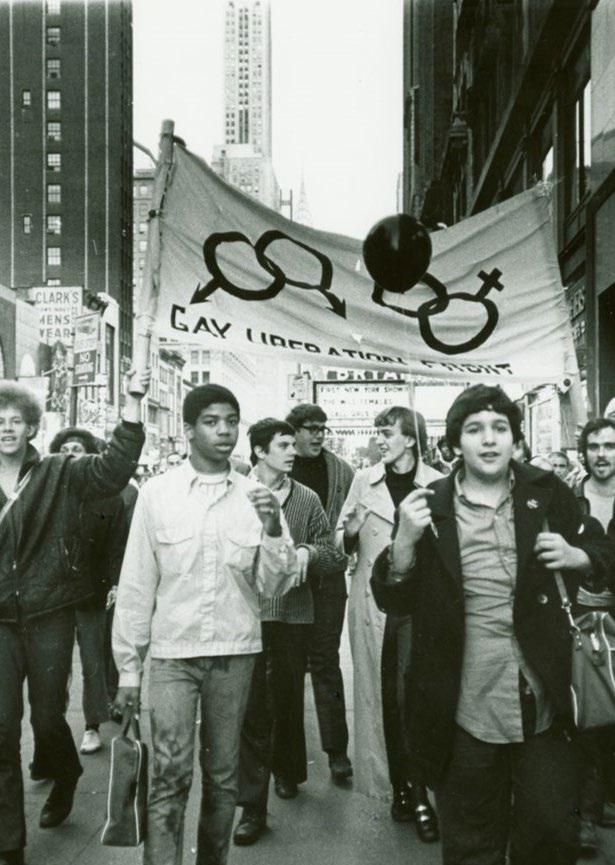
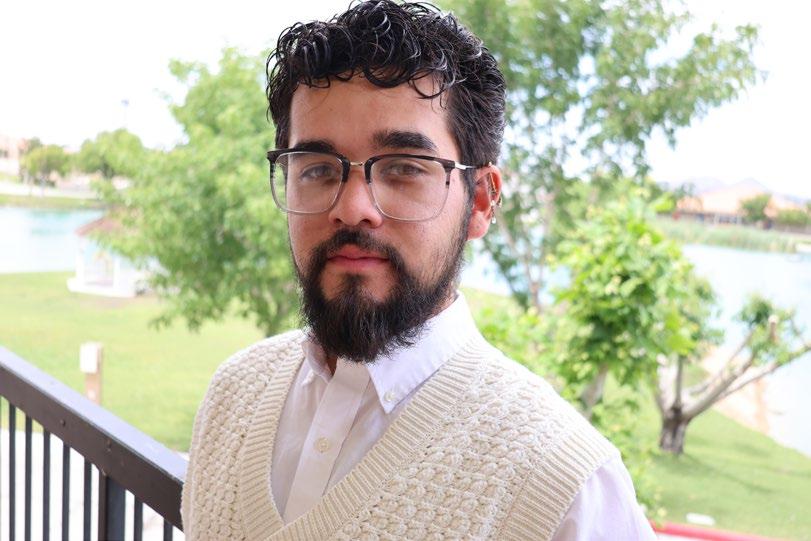
By: Andrew Caravella
For Leonardo Maldonado, pride isn’t just about identity—it’s about resilience, truth, and building the kind of community where others can feel seen. A Political Science student with a concentration in American Government, Leo is a first-generation college graduate whose dreams include becoming a teacher and, one day, the Attorney General of the United States. But before the vision of law and leadership, Leo had to navigate the deeply personal journey of discovering and embracing who he was.
Leo first thought he was different around the third grade, long before he had the vocabulary to explain it. In fifth grade, he confided in his grandmother sort of in a joking way, to test the waters as he puts it—her fearful reaction at the time planted seeds of uncertainty. By the end of eighth grade, those emotions came to a head when Leo, unable to voice his feelings, turned to his passion for writing. He penned a letter to his father, coming out as gay, and left it for him to read. A year passed in silence—until one day in the car, his father unexpectedly pulled the letter from the glovebox and told Leo, “You are my son, and I will always love you.” That moment of unconditional love became a turning point. And when it came time to tell his grandmother, she responded with a gentle truth: “I knew before you did.” Her words were filled with memories of Leo dancing in the front yard, singing, loving Cinderella, and playing with his Harry Potter wand like it was a magic wand from the fairy godmother. “I don’t love you any differently,” she said.
Leo’s road wasn’t without hardship. He came out as bisexual in middle school to “play it safe” in a new town when his family moved up the hill to the High Desert. When he came out as gay in seventh grade, it spread quickly—resulting in bullying, even physical assault. Still, Leo chose courage. At Serrano High School, he found acceptance for the first time, even in a conservative-leaning community. Surrounded by supportive teachers and classmates, Leo flourished and grew into a leader.
At Victor Valley College, he became deeply involved in student government and Model United Nations club on campus, eventually serving as Activities Director, Vice President, and acting President.
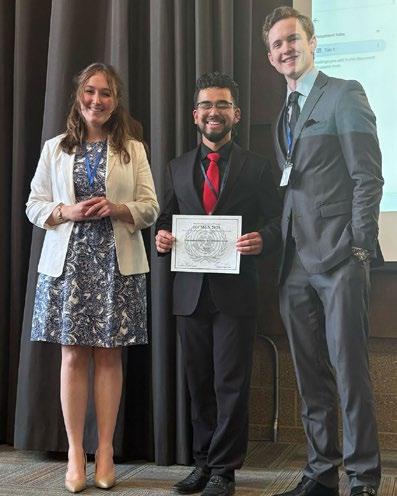
RAMS Monthly asked Leo for some advice to students in which he responded: “Never stop engaging. If you don’t see a community, build one. That’s how you find your people.”
Despite the stereotypes he’s faced—from both the Latino and LGBTQ+ communities— Leo has stayed grounded through academics, activism, and mental health awareness. “There’s a pressure to check all the boxes of what being gay is supposed to look like,” he shares. “But once I let that go, I started living more authentically.”
Now transferring to Cal Poly Pomona with plans for a PhD, Leo reflects on how far he’s come. “As someone who never thought college was even an option, I now stand here with higher dreams and the fire to pursue them.”
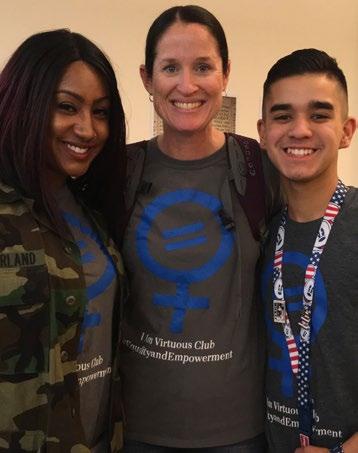
Leo’s story is a powerful reminder of what Pride Month truly represents: the freedom to live as your full self, the strength to overcome adversity, and the importance of community. As he puts it, “I want to dedicate my successes to my supportive community and the millions of unknown Latino and gay activists who have fought for the promise of America. I will never stop speaking up for LGBTQ youth.”
